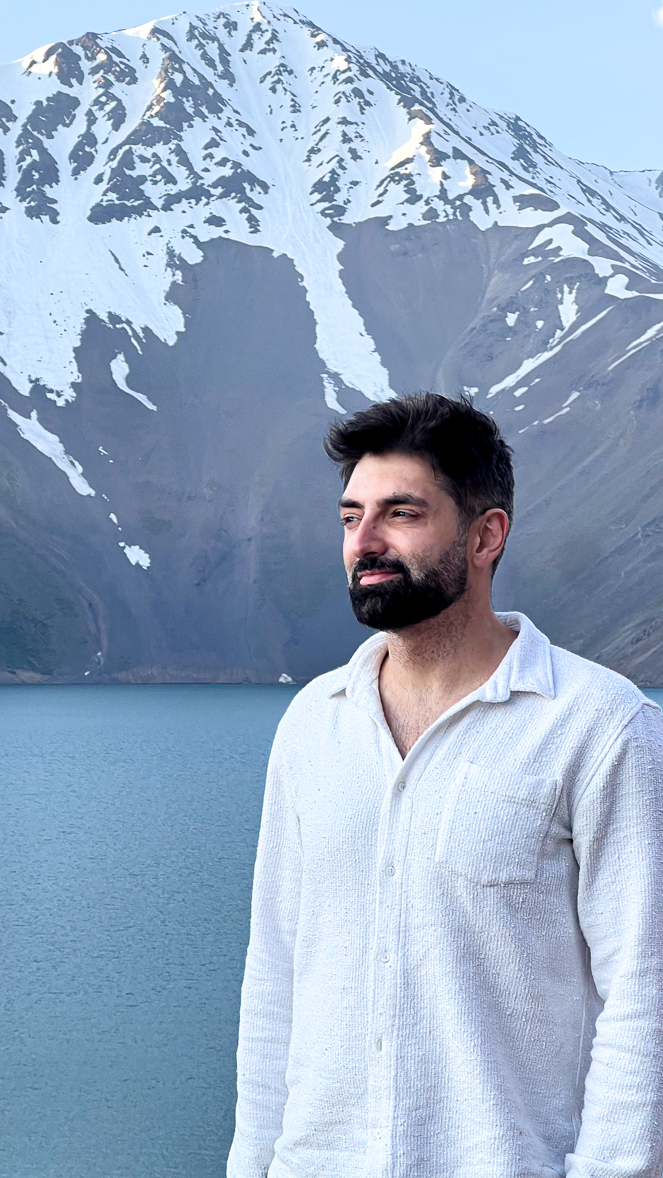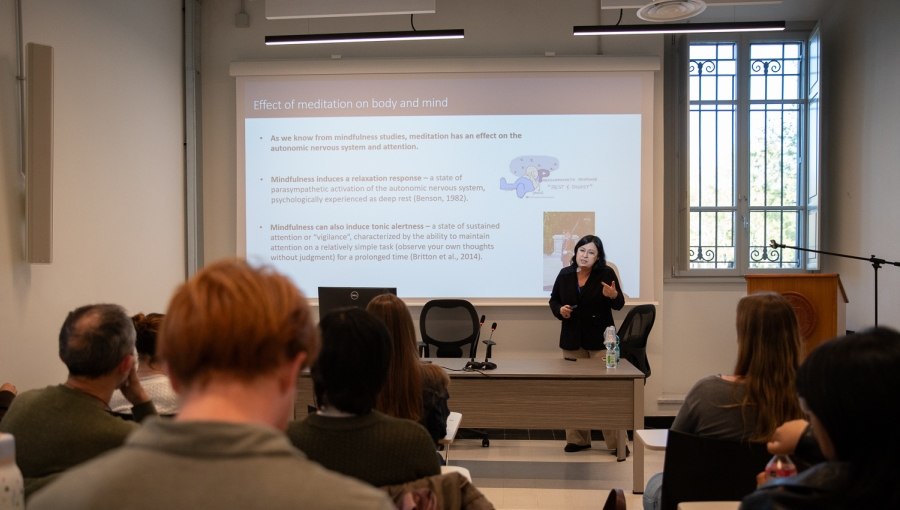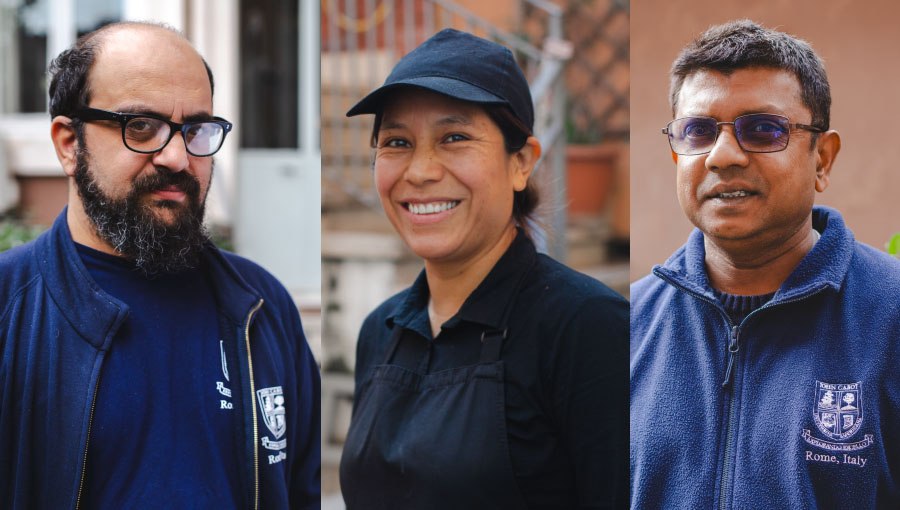The Mental Health Impacts of Prejudice and Discrimination: Meet Psychology Professor Angelo Brandelli Costa
Angelo Brandelli Costa began teaching psychology at John Cabot University in Fall 2024. Born in Brazil but with Italian origins, Professor Costa has dedicated his life to teaching and research in the field of psychology with a focus on sexuality, prejudice, and discrimination. He is the first Latin American researcher to receive the Rising Star from the Association of Psychological Science (APS) and he is one of the 30 leaders of the APA Global Psychology Learning Leadership Institute.
Tell us about yourself. What drew you to Rome?
I was born in Garibaldi, a city in the south of Brazil, but my family is of Italian descent. I received my early education in Brazil and later attended Hunter College of the City University of New York (CUNY). I have always been in contact with a multicultural audience, thus, the chance to work at John Cabot University, known for its diverse student body and international outlook, presented itself as a unique opportunity.

What made you decide to pursue a career in psychology?
My decision to pursue psychology stemmed from a profound desire to understand human behavior and the psychological mechanisms behind social phenomena. Growing up in Brazil, I witnessed firsthand the impact of social inequality and discrimination, which fueled my passion to explore and address these issues through psychological research. The field of psychology offered a scientific yet empathetic approach to understanding and mitigating these social challenges. Moreover, I was drawn to a field that would allow me to be both a researcher and educator, integrating humanistic, biological, individual, and social aspects. Psychology provided a bridge between these domains, allowing me to pursue an applied field with the potential for transformative social impact through my research.
How did you become a professor?
My academic journey began at the Federal University of Rio Grande do Sul, where I completed my undergraduate, master’s, and doctoral studies in psychology. Throughout my academic career, I have been fortunate to work with inspiring mentors and engage in impactful research projects. My transition to academia was a natural progression, driven by a passion for teaching and a commitment to fostering the next generation of psychologists.
You are the first Latin American researcher to receive the Rising Star from the Association of Psychological Science (APS), in addition to being one of the 30 leaders of the APA Global Psychology Learning Leadership Institute. Tell us about these accomplishments.
Receiving the Rising Star Award from the APS was a significant milestone in my career. It was an honor to be acknowledged for my research on the impact of prejudice and mental health. Being selected as one of the leaders of the APA Global Psychology Learning Leadership Institute further validated my efforts and provided an invaluable platform to collaborate with distinguished psychologists worldwide. These experiences have enriched my professional network and driven my commitment to advancing psychological research and education.
You are editor-in-chief of Trends in Psychology, and you collaborate with several other important magazines focused on psychology. Tell us about your recent contributions.
In my role as editor-in-chief, I oversee the curation of high-quality manuscripts, and peer reviews, and ensure the journal’s academic integrity. My mission is not only to make sure that the journal serves as a platform for high-quality, internationally impactful research from Brazil but also to establish it as a global forum for psychological research encompassing diverse areas. It is an incredibly engaging and fulfilling endeavor.
Currently, I also serve as the editor of the social psychology section of PLOS ONE, and I am honored to be a member of the editorial boards of journals from the SPSP (Society for Personality and Social Psychology) and Psychology and Sexuality.
What type of research projects are you working on right now?
My research interests lie at the intersection of social psychology, health, and political psychology, with a focus on understanding how social experiences shape individuals and communities. Currently, my projects delve into the mental health impacts of prejudice and discrimination, particularly amongst LGBTQ+ youth in Brazil. This work involves developing and utilizing psychological assessment tools to understand the nuances of prejudice and its effects on mental health, while also exploring interventions that can reduce stigma and promote well-being in marginalized communities.
Another key area of my research focuses on vulnerability to HIV/AIDS. I investigate the social factors that influence HIV stigma and hinder access to healthcare and prevention services. Currently, I am leading a nationwide research project in collaboration with UNAIDS and AIDS NGOs in Brazil to reassess the “Stigma Index” related to people living with HIV/AIDS. This community-based study gathers crucial data on the stigma and discrimination experienced by people with HIV living in Brazil. We are currently replicating the study in the same seven capital cities from all regions of Brazil: Manaus, Recife, Salvador, Rio de Janeiro, São Paulo, Curitiba, and Porto Alegre. This will allow us to analyze trends and changes in stigma over time, and to understand the impact of public policies and interventions implemented since the first study, which started in 2019.
Building on my expertise in social psychology and health, I also examine the health of the LGBTQ+ community. I investigate the impact of psychosocial factors, such as discrimination and internalized prejudice, on the physical and mental health of these individuals. This research aims to identify and address barriers to healthcare access, including those related to body change procedures, and to promote the overall well-being of this marginalized group. I also explore the impact of psychosocial factors on the health of the community. In collaboration with computer science colleagues, I’ve recently started exploring the use of computer graphics and AI to analyze human behavior, personality traits, and cultural origins. This involves developing virtual humans to address questions of identity and diversity and creating practical applications for these technologies in training and education.
Moreover, I am interested in the interplay between political psychology and authoritarianism. My research in this area explores how authoritarian tendencies and political ideologies contribute to prejudice and discrimination. I also investigate the relationship between political factors and health psychology, such as vaccine hesitancy in the context of COVID-19. Additionally, I examine the factors that influence the political participation of minority groups, aiming to understand and address the barriers that prevent their full engagement in formal politics.
My research journey has been deeply enriched by the diverse experiences and perspectives I’ve encountered. I’ve had the opportunity to connect with and learn from individuals from vastly different walks of life. For example, as a gay man working with transgender individuals, and while doing research with marginalized communities affected by HIV and AIDS, I’ve witnessed firsthand the power of recognizing both our differences and our shared humanity.
What is your teaching philosophy?
My teaching philosophy centers on creating an inclusive and engaging learning environment that encourages critical thinking and fosters intellectual curiosity. I believe in the importance of providing students with hands-on experiences and opportunities to engage in meaningful research projects. I strive to inspire my students to become independent thinkers and compassionate professionals. Given that I was educated in a multicultural and diverse environment, I tend to prioritize equity and inclusion in this process.
What is your impression of JCU so far?
My impression of John Cabot University has been overwhelmingly positive. The university’s commitment to academic excellence and its supportive community of faculty and students create a dynamic and enriching environment for both teaching and research. The diverse student body and the collaborative atmosphere at JCU offer a unique opportunity to engage with different perspectives and contribute to a truly global educational experience. I am excited to continue my journey here and look forward to the impactful work we will accomplish together.





